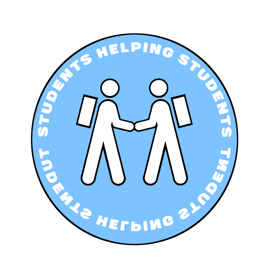10 Common Mistakes Students Make on Their Applications (and How to Avoid Them)
A guide of what NOT-to-do for incoming applicants
Christopher Madden
6/3/20255 min read


As a wise man once said, “If you fail to plan, you plan to fail.”
Applying to colleges, universities, or even internships can be very stressful and daunting. While you are hurrying to finish these applications on time, it’s important to ensure there aren’t any careless mistakes. To help you navigate the general college admissions process, here are 10 common mistakes students make on their applications—and how you can avoid them.
1. Procrastinating Until the Last Minute
If you’re waiting until the last second to start your application, you are begging to submit either late or sloppy work. Rushed applications often lack depth, contain typos, or miss key details that would’ve definitely boosted your application
How to Avoid It: Start early! Take some time in August of your application cycle and understand what exactly is going to be demanded of you! Most importantly, you don’t have to finish everything all at once, but take it step-by-step.
What I mean by that is to glimpse through the supplemental essay prompts you’ll have to write and documents you’ll have to gather. Create a timeline for completing each section of the application, including essays, recommendation letters, and transcripts. Give yourself at least 1 week to review and revise.
2. Making Essay Edits On the CommonApp Platform
Writing or editing directly in the CommonApp text box can lead to countless mistakes. Sometimes, you’ll change something without altering the grammar of the verb before it and overall, the CommonApp textbox is just too limiting.
How to Avoid It: Always draft and edit your essay in a separate document (e.g., Google Docs or Word) where you can use spell check, word count, and grammar tools. After your finished your final draft, copy and paste it to CommonApp. Preview how it will appear on your application before submitting.
3. Overlooking Proofreading
Constant spelling and grammar mistakes can leave a poor impression, especially when applying to top universities like Harvard, Yale, etc. Not to say you’ll be automatically rejected over a minute spelling error, but if your essay is plagued with these mistakes, it will definitely hurt your chances.
How to Avoid It: Proofread your application multiple times. Use tools like Grammarly, but also ask a teacher, parent, or friend to review it for you. If you can’t use any of those, even ask ChatGPT to assess the strengths and weaknesses of your essay.
4. Writing Generic Essays
Many students submit essays that are vague, cliché, or fail to stand out. Admissions officers are defending your case to an admissions committee on why you should be admitted to that school and they read thousands of essays, so yours needs to be memorable.
Examples of Cliche and Overdone Topics:
Winning a sports game or championship.
Mission trips or "saving" others abroad.
Failing and then succeeding (e.g., failing a test).
A grandparent’s or pet’s death.
Moving to a new school or town.
Volunteering just to list it (without deeper reflection or special motive why you volunteer).
The "I love [subject] because it’s my passion" essay.
Overcoming a minor injury or illness.
The "I’m unique because I’m a twin" story.
Generic "hard work pays off" narratives.
How to Avoid It: Be specific and personal. Cut out the fluff. Share stories or experiences that are uniquely yours—ones that reveal your character, values, and aspirations. Show, don’t tell. If your essay could be copied and pasted onto someone else’s application without anyone noticing, it’s not personal enough. Make it unmistakably you.
5. Focusing Too Much on Achievements
While it’s important to highlight your accomplishments, listing them without context or reflection can make your application feel shallow.
Instead of writing:
"I won first place in the science fair, was captain of the debate team, and volunteered at the local food bank,"
Try this:
"Winning first place in the science fair wasn’t just about the trophy—it was about the nights I spent troubleshooting a failed experiment, learning that persistence matters more than perfection. As debate team captain, I discovered how to listen before speaking, a skill that helped me mediate conflicts during my volunteer work at the food bank. These experiences taught me that leadership isn’t about titles; it’s about empathy, resilience, and a willingness to grow. Now, I want to use these lessons to pursue a career in environmental policy, where I can advocate for solutions that unite people and science."
This approach ties your achievements to personal growth and future goals, making your application deeper and more meaningful. The end goal of stating these achievements isn’t just to impress your admissions officer, but to showcase what you’ve learnt from them.
6. Choosing the Wrong Recommenders
Asking someone who doesn’t know you well enough to write a recommendation letter can result in a generic, straight-up ‘copy and paste’ template of a recommendation.
How to Avoid It: Build strong relationships with your teachers—especially those connected to your future career goals. (e.g. If you were planning on doing medicine, you should be particularly nice to that Bio teacher…) Provide them with your resume and a summary of your goals to help them write a strong letter.
7. Neglecting Extracurricular Activities | Doing Too Many
Some students list too many activities without explaining their significance… Others don’t even realize that certain things they do count as extracurriculars. Your activities section is your chance to show admissions officers what you’re passionate about—or even obsessed with. At least 2-3 activities should be somewhat related to what you want to do in the future.
How to Avoid It: Here’s my number one rule: if it’s taking up a significant chunk of your time outside of school, it’s an extracurricular. Start by listing 10 of your most time-consuming activities… Then, rank them by merit and the impact you’ve made. Focus on quality, not quantity, and make sure to highlight what you’ve achieved in each.
8. Applying to the Wrong Schools
Guys, never forget that Google is a free resource.Before hitting "submit," double-check to see whether the schools you’re applying to actually offer the programs, opportunities, or experiences you’re passionate about. Applying to schools that don’t align with your academic interests, values, or goals can lead to dissatisfaction—or rejection.
How to Avoid It: Research schools thoroughly. Consider factors like program offerings, campus culture, location, and size. Make sure your application reflects why you’re a good fit for each institution. Remember, it’s not just about getting in—it’s about finding the right place for you.
9. Underestimating the Importance of the Personal Statement
Some students treat the personal statement as an afterthought, and hope that they can slide past with a subpar essay. Unless the college you’re applying to is essay-optional, this is the most important essay in your application.
This is your chance to show admissions officers who you are beyond your grades and test scores. Skipping this opportunity to showcase your personality, motivations, and unique story can leave your application feeling flat.
How to Avoid It: Spend time brainstorming and drafting your personal statement. Be authentic and let your voice shine through. Use it to tell a compelling story that ties your past experiences to your future aspirations.
10. Failing to Double-Check Before Submitting
Submitting an incomplete application or forgetting to include required materials can lead to automatic rejection.
How to Avoid It: Create a checklist of all required documents and steps. Review your application multiple times before hitting submit. Ensure all sections are complete and all files are uploaded correctly.
I hope these tips helped and good luck with your application! Feel free to check out our other articles for more info.
